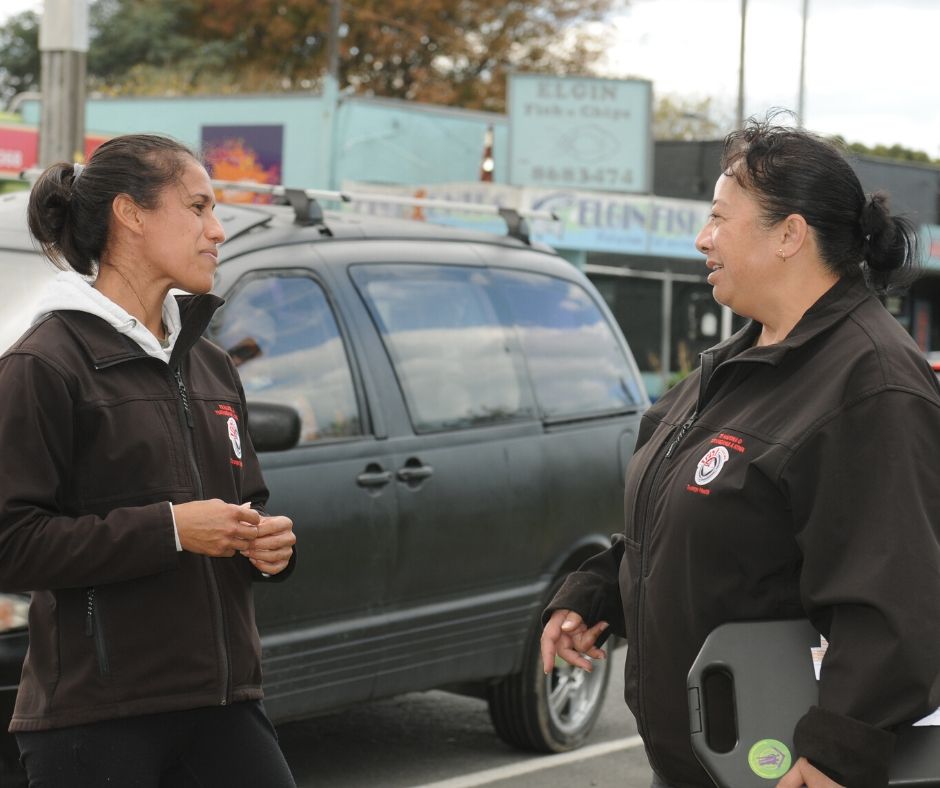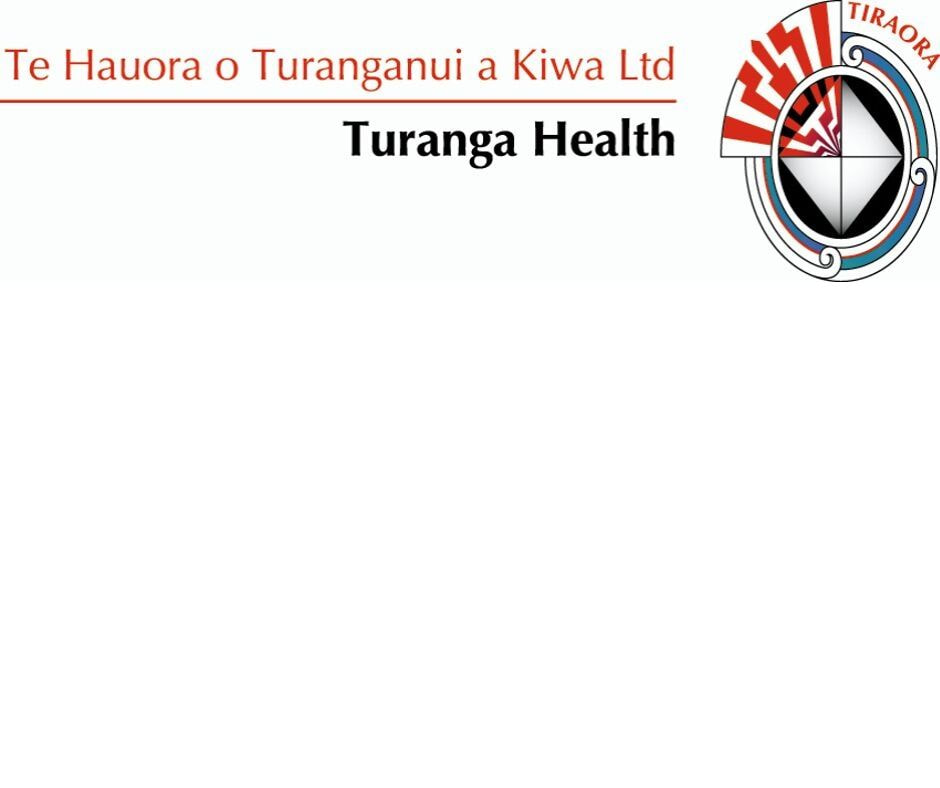 As COVID-19 threatened the rohe this month Tūranga Health staff mobilised a swift and unprecedented campaign to protect whānau from influenza. “We’ve never done anything like this before or to this scale,” says Tūranga Health manager Dallas Poi, who’s helped oversee the all-of-staff crusade to keep whānau safe from influenza and its complications. In just one month, Tūranga Health has vaccinated 250 people in their homes and another 300 people in their workplace. “In a regular year we’d spread the vaccinations out over a two-or-three-month period but with the COVID-19 situation we knew we had to vaccinate as many as we could as soon as we could.” Ms Poi says it is normal practice for the iwi health provider to vaccinate primary industry workers as part of its workplace wellness Tū Mahi programme offered to local companies. The workplace vaccinations happened with speed this month at Cedenco Foods, Leaderbrand, Coxco, Riverland Fruit Company, Thompson’s Horticulture, Gisborne Fisheries, and Illawarra Orchard. “They are often two-day jobs but this month we decided to throw a lot of nurses and kaiāwhina at it in one go and have safely vaccinated dozens of primary industry staff in just a couple of hours at each workplace.” Individuals who use Tūranga Health services are usually educated about influenza and encouraged to get their jabs with their GP. But not this year. A fast, home-based roll out of influenza vaccinations, was aimed at keeping the district’s vulnerable and elderly healthy, and as a result, hospital beds free for people with COVID-19. There’s another 150 to go. “We needed to prevent a bad flu season from stressing out a health system that was preparing to cope with the virus.” Tūranga Health’s vaccinations of individuals started ahead of lockdown. The organisation’s nurses and kaiāwhina travelled through the city and into rural areas in the crazy days before lockdown encouraging as many over 65-year-olds and people with long term conditions to come to various meeting points with their sleeves rolled up. Once lockdown was in place two-person teams including a nurse and a kaiāwhina have continued to move around people’s homes offering the vaccination and checking how whānau are. They do as many of the vaccinations as possible outside of the home and limit their physical contact with the person- apart from the actual moment of vaccination. Verbal rather than written consent is sought so there’s no sharing of pens and paper. And this year the recommended post-vaccination observation time was dropped from 20 to 10 minutes where appropriate to help speed up the process and reduce participant’s exposure to potential infectious disease. Registered nurse Kimiora Biddle says it’s an unusual way to deliver health care. It feels a little more rushed than normal but people they visit are grateful to have been vaccinated at all, and in their own homes. “We are seeing sometimes 20 people a day. We are entering a lot of people’s bubbles but we are all well-trained in the appropriate infection control processes and we are able to keep ourselves and our clients safe.” Kaiāwhina Rhonda Pohatu says this kind of support work alongside nurses is unusual for her. She’s enjoying the chance to work with whānau and help resolve any anxieties. She says her own family is very supportive of the work “mum is doing” and know to wait until she has showered and changed before giving her a welcome home hug. As well as the influenza vaccinations Tūranga Health staff have delivered over 1100 hygiene buckets to families who use Tūranga Health services – with another 400-plus to go, says Ms Poi. “As well as the delivery of some practical items like wipes, disinfectant, and tissues, it’s a way of catching up with whanau to see if they need any help.”
2 Comments
WHILE many were panic-buying or checking on whanau in the hours before lockdown, Amanda Humphris was standing in a rural carpark administering a production line of 'flu jabs.
“It all felt a bit manic but a line of cars had turned up to meet us at Mangatu and it all went really smoothly,” says Amanda, a nurse at Turanga Health. “Those three days we worked huge hours with vaccinations during the day and doing the paperwork at night but we had a goal and we went for it. “Between us we covered all of Turanga Health's town area, as well as places from Manutuke and Muriwai to Patutahi, Te Karaka and Whatatutu. Our team in the office would make the arrangements and we'd meet people in carparks, outside their houses, on the sides of the roads . . . wherever we could.” As part of Turanga Health's pre-Covid-19 Level 4 push, Amanda and her colleagues spent the three days before lockdown giving over 250 influenza vaccinations both to protect whanau, and to keep pressure off the health system. It was the second part of a two-pronged pre-lockdown push and to come up with the first, chief executive Reweti Ropiha didn't have to look further than out his office window. “The day before the alert levels were announced I just happened to glance up and saw (staffer) Norm Namana walking past carrying a bucket,” he says. “That prompted the idea of getting a whole lot of buckets, filling them with things people needed at that time, and delivering them to whanau. And that's just what we did.” The window for action was small. On Saturday, March 21 the Prime Minister announced the country's four-level pandemic alert system (and the news that we were already at alert Level 2) and urged anyone over the age of 70 or with health issues to stay at home. Two days later she said we were alert Level 3, and that by March 25 – the Wednesday -- the country would go to Level 4, full lockdown. So while Reweti's plan might have sounded simple, getting those 1100 buckets out to whanau – particularly pakeke – required an operation of military scope and execution. Getting the extra 'flu vaccinations had been tough enough: Turanga Health called on the goodwill of general practices around the region to boost its supplies. But getting their bucket-list of information and hygiene supplies – on a weekend, in the midst of a pandemic – was no picnic, either. That task fell to project manager Dallas Poi, who had decided to fill the buckets with soap, disinfectant, wipes, eco bags to hold contaminated material, and information packs about Covid-19. “I don’t know how she did it or where she got all the stuff from . . . it was amazing,” Reweti says. “But she did and, after working through the weekend, we were ready to start deliveries on Monday morning with one person driving the van, a couple in the back to jump out with the buckets, and a truck following behind with top-up supplies. “The last deliveries were made at 9pm on Wednesday – three hours before lockdown – and just seeing the tears from whanau showed we had achieved our aim of keeping it connected and keeping it real with vulnerable whanau and iwi in Turanganui a Kiwa. These weren't just buckets of health supplies. They were a way of saying 'we care', 'we know the next four weeks are going to be tough and we are here for you'.” Throughout the process communication was key and from the Saturday population health manager Dwayne “Tama” Tamatea had reinvented himself as a presenter to front on-line videos outlining Turanga Health's plan. “We wanted to reassure whanau, to get the important messages out there, and I can't say enough about the awesome effort of our staff at Turanga Health,” says Tama. “Everybody just dug into the trenches and worked to get the job done.” Post-lockdown, Turanga Health continued essential work in looking after those in need but Reweti says it was in the pre-Level 4 push that the team truly showed its passion. And aside from his usual rock-solid commitment to whanau, he had another reason for wanting to react quickly to the approaching storm. “I remember my father telling me about his own father's experience with the 1918 Spanish 'flu, when his family of 16 was hit so hard their number was reduced to just six. That was not an experience I lived through, but I will never forget what he told me. “So we knew we had to act and act fast and the team really stepped up to achieve that . . . it will be a long journey but they had the desire and intent to beat this thing. “And whanau at our Vanessa Lowndes Centre (for those with physical and/or mental health issues) even did their bit, working that pre-lockdown weekend to get more than 250 parcels of meat and vegetables out to any whanau that might have needed it.” Reweti says that, when the Turanga Health strategy was decided on, he told staff that they were in for a marathon but were in a position to front-foot it. “They were all in. No one talked about their own concerns, no one mentioned timesheets. There was a sense of pride about helping people in our community and that was the only motivation they needed. And when they get time to reflect on all this effort they'll realise they were part of a special team that helped the fight against a global threat.” |
Media Releases
Email us if you want to receive our media releases. Archives
February 2024
|



